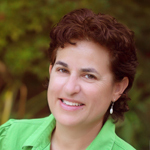 By Gioia Messinger
By Gioia Messinger
Gioia Messinger is the Founder and CEO of LinkedObjects, a Lecturer at U.C. San Diego's Rady School of Management, and a Judge for the Qualcomm Tricorder XPRIZE.
Much of the talk about consumerization in the health care market--the ongoing trend to turn patients into consumers--has focused on health apps and wearable devices that allow people to monitor physical activity and track a few vital signs. Diagnostic-driven smartphone technologies aimed at increasing efficiencies for doctors and their staffs--and improving clinical outcomes--have so far lagged this trend.
According to a report by Lux Research, the mobile health market will grow from $5.1 billion in 2013 to $41.8 billion in 2023--an eightfold increase. Up until now, we've seen mobile health funding and revenue generally focused on consumer health devices and apps, but the report states that clinically-focused mobile health devices "will soar past consumer-focused counter parts after a slow start due to regulatory approval barriers and slower integration into physicians' workflow." Analysts anticipate the market for clinical devices (such as vital sign monitors and other diagnostic tools) that leverage mobile technologies will grow from $372 million in 2013 to $16 billion in 2023, while consumer health applications will increase from $2.5 billion to $7 billion over the same time frame.
We are beginning to see mobile apps for smartphones and tablets that promise to fundamentally change the way doctors approach health care. These applications range from handy databases about drugs and diseases, to sophisticated diagnostic tools that screen a child's eyes for risk factors that could lead to vision loss. In such a case, early detection can help prevent potential vision loss from becoming a permanent issue, which would be very costly to the health care system.
Initially, I expect innovation around modern interpretations of tests and devices that currently exist in primary care. The tools we've seen hanging on the walls of doctors' offices since we were kids haven't changed much in 50 years! For such devices, smartphones provide a very capable computing platform that offers a fantastic user interface and high-grade imaging, communications and portability--enabling better documentation and improved decision making for the patient.
Mobile technologies will also facilitate specialty testing to migrate closer to the point of care. Combining smartphones with sensors and purposeful, miniaturized medical devices will allow for portable, cost-effective, point-of-care clinical diagnostic and screening tools to be brought to a broader audience of health care providers. These emerging capabilities, along with market trends like the shortage of physicians and the critical need to contain costs, will help fuel the growth in the clinically focused mobile health space.
Adoption of these tools will depend on ease of use, accuracy, relevancy and how much friction or disruption they cause in the daily workflow of doctors. The objective is to create apps and devices that doctors can't live with out. Adaptable, time saving tools that have the potential to make health care more efficient by speeding diagnosis, improving patient monitoring and reducing unnecessary visits to a physician or hospital.
We are early in this innovation cycle--the field has a way to go, particularly when it comes to making good use of the flexibility provided by smartphones and the wealth of actionable patient data to make accurate and speedy diagnoses leading to better outcomes.
I am hopeful that regulatory approval and integration into physicians' workflow accelerate, allowing this fundamental shift in health care to take hold.
Visit XPRIZE at xprize.org, follow us on Facebook, Twitter and Google+, and get our Newsletter to stay informed.